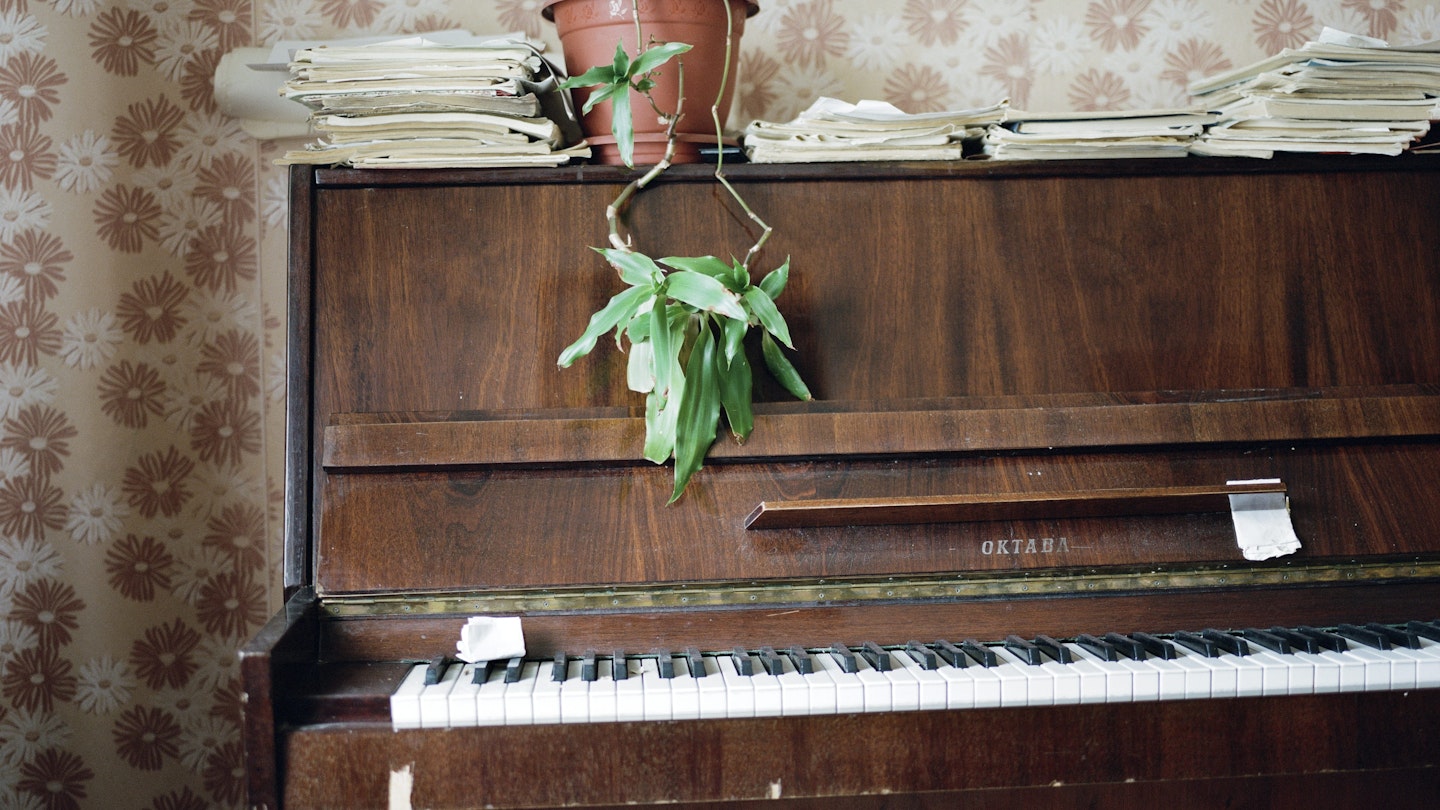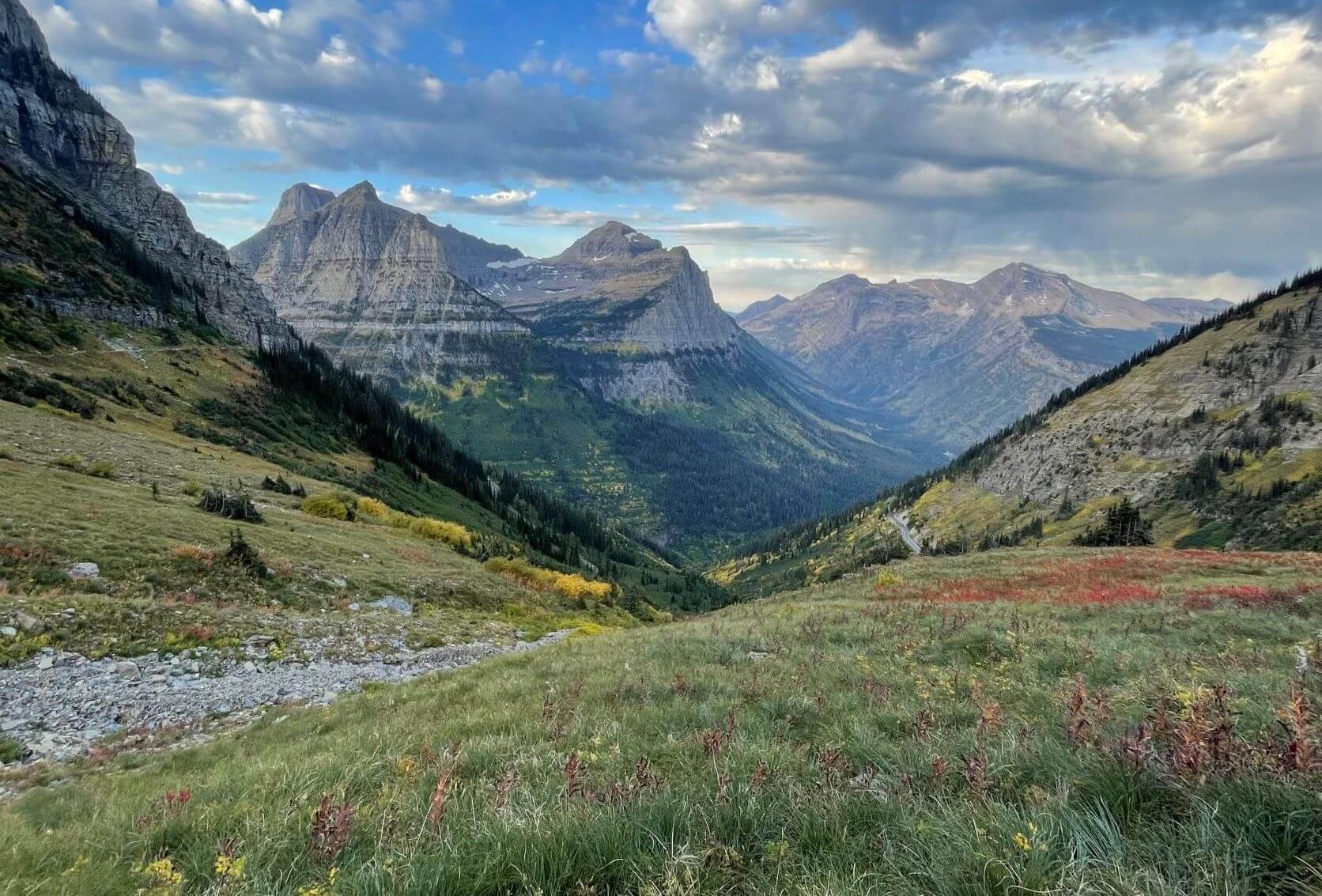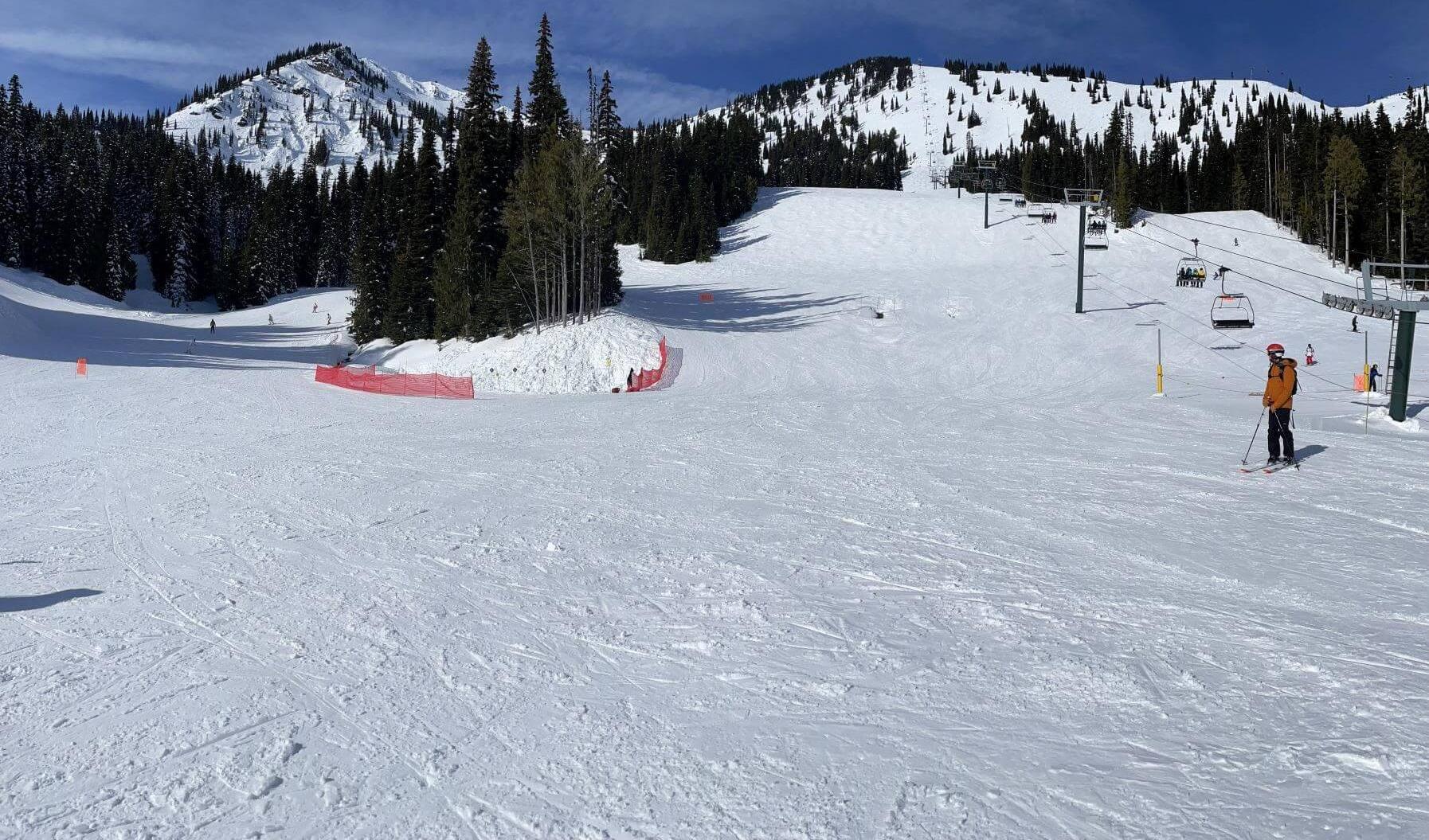Travel writer Sophy Roberts spent two years crossing the cold, harsh wilderness of eastern Russia in search of a piano—a gloriously absurd quest detailed in her absorbing modernist masterpiece, The Lost Pianos of Siberia. Now for the big question: why?

He was murdered just after midnight. He’d been poisoned with potassium cyanide, shot several times, and he was then thrown in the icy Little Nevka river. That’s the killer’s account, anyway. His body was then embalmed—a privilege reserved for Russian leaders and Tsars—and he was buried in the imperial residence Tsarskoe Selo. Not bad for a Siberian peasant in the early 1900s. The embalming and the funeral didn’t long matter: two months later an uprising in St Petersburg would result in the abdication of Nicholas II. Revolution followed. Soldiers would later dig up Rasputin’s body, cart it off in a piano, and burn it in a nearby forest.

What stands out above? The brutal murder? Rasputin’s royal connection? Revolution? For journalist Sophy Roberts, it’s the piano. That the story features only as a footnote in her masterful travelogue The Lost Pianos of Siberia.

The book follows Roberts on a two-year search for any interesting pianos that remain in Siberia—from the instrument’s introduction by Catherine the Great in 1774 until the Red October state factory stopped its production in 2004.

Over the centuries, many of the region’s instruments were stolen, used as firewood, sold for food, or last seen fleeing atop trains as revolution took hold. However, in seeking out the few pianos that remain, Roberts cleverly chronicles the rise and fall of the world’s biggest country through its relationship with the instrument. It’s a beguiling blizzard of modernist travel literature and cultural conservation.
“My book is mad in so many ways,” the 47-year-old journalist is explaining to Lonely Planet over Zoom from her home in Dorset, England. “The money, the madness, it simply does not add up.”

It doesn’t. It sounds more like a drunken bet: visit Siberia during the winter and try to find an instrument worthy of the talents of Odgerel Sampilnorov, a sublime young pianist from Mongolia. It’s an absurd premise. Gloriously absurd. Made even more so by Siberia’s myths, its often untrusting locals, and Roberts’ insistence on working using traditional journalistic techniques. Just look: “I backtracked a lot, a lot,” Roberts says, “I wasn’t trying to write and report this book using telephones. I was trying to do it by knocking on doors and finding a human connection.”

A long way from Moscow
Retracing your steps when you’re slow-pacing across an eleventh of the planet’s landmass—from Ekaterinburg to who knows where (to paraphrase Anton Checkov, whose quip Roberts’ uses as her own parameters of Siberia)—is difficult and demanding. “It’s a long way from Moscow,” the locals would often tell her, meaning both in temperament and distance.

Coldest place on earth
Wider than Australia and with forest fires that produce clouds larger than the EU, we’re told, this vast, snow-quilted region is home to some of the coldest cities on Earth—a harsh, unforgiving expanse of icy isolation. Consequently, ideal, some Tsars believed, for a penal exile system; a void from which few prisoners would ever return. However, as Roberts discovers, it’s a place where pianos still manage to wash up from “the high-tide mark of nineteenth-century European romanticism.”
“One moment when I was up in a place called Lake Numto, which it’s hard to get to, properly hard,” effuses Roberts. This is a journalist who’s filed stories from Papua New Guinea, Sao Tome and Principe and the fringes of Antarctica. “There’s no there’s no bus, train or anything else in.”

Roberts had flown in by helicopter, chasing rumors of a piano. Shortly after arriving, however, she got a call from someone she had tried to track down two weeks earlier. She headed back, retracing the first 20-30 miles by snowmobile and then hitching rides with oil and gas workers to complete her journey.
Travels into Russian Far East
By that point, Roberts was enchanted. Just as Russia had fallen under the spell of the piano through the “brilliant, passionate, demonic” performances of Hungarian virtuoso Franz Liszt, so Roberts seems unshakably snow-blinded by her own quest. “Only when I started travelling deep into the Russian Far East did I realize I could no more unsnag the idea of Siberian lost pianos than set out coatless into cold so extreme it makes your tears freeze into the lines around your eyes,” she writes. For the reader, it’s hard not to be drawn into her snowstorm too.

Travels of the imagination
Raised alongside two sisters on the west coast of Scotland, Roberts’ upbringing was a creative, bookish one. Her father was a writer and a fish farmer; her mother a painter. All three were brought up in such a way that they were encouraged to fill their own time. The family didn’t have the means or time to travel. They didn’t have a TV. However, every night, without question, Roberts’ father would read to them. She fondly recalls stories like The Secret Garden by Frances Hodgson Burnett and The Faraway Tree series by Enid Blyton. “Travels of the imagination,” as Roberts calls it. “I definitely got my sense of adventure from books.”

There were other itchy-feet influences too: an errant uncle who disappeared whilst walking in the Pyrenees; a great-grandfather who crossed the Yukon. Therefore, it was somewhat inevitable that at 18, Roberts would use the £3000 her grandfather left her to travel across India and Nepal.
Becoming a travel writer
“It was a complete epiphany,” Roberts says of the year-long trip, “and it was immediate.” Encouraged by her father, Roberts would send home a letter each week via the Poste Restante system. It was this regular correspondence that is likely to have shaped Robert’s writing voice. “Just be honest: write, write,” her father had enthused. “Don’t think of me as your father, just write and tell us how it is, tell us everything.”

Siberian labour camp musicians
Roberts does just that in The Lost Pianos of Siberia too. Fluid and unflinching, it’s an absorbing read; a book that deftly balances chiaroscuro, light, and dark. One such instance is when Roberts is in Akademgorodok, searching for the last instrument of Vera Lotar-Shevchenko, a French-born pianist sent to a Siberian labour camp for “anti-Soviet agitation and propaganda.” In the Gulag, Lotar-Shevchenko was said to have pined for her piano so much that her fellow prisoners “carved a keyboard into her wooden bunk with a kitchen knife so she could practise silently at night.”

The day she was released she walked straight to a nearby music school, still wearing “her convict’s quilted pea coat,” and asked to play the piano. “Vera sat at that instrument for one, maybe two hours,” Roberts writes. “She played without stopping, laughing and crying, the recall of her repertoire note-perfect as her stubby fingers behaved with the same exhilarating precision as they had before her arrest. […] It was like every part of her was being lost to the music, as if she could see everything all at once.” Roberts doesn’t shy away from the horrors that haunt “The Gulag Archipelago” either: we read in detail about the murders; the starvation; the convicts chained to prison walls; the enemies locked into rooms and sprayed with water so they’d freeze to death. It’s not a book for the soft of heart.

Roberts is an assured storyteller and during our call she is fastidious with her replies—a number of times she reaches for a book to double-check a quote, or asks her assistant Serena to look something up to confirm it. However, just as in the book, there are times when her answers bloom with poetry, like a murmuration of starlings swooping across the conversation.
Keeping piano playing alive
“Roots matter whether where a tree or a human being. We’re always looking for those things which stabilise us—and that includes culture,” Roberts says when asked whether pianos need to be played to be kept alive. “That is why I think these instruments matter: not just as a sort of dusty thing in a corner that you look at, even if it sounds bad, the act of playing it is taking that child back to the grandmother’s story. We forget our stories too quickly, too easily, and it’s only through history that we learn how to behave—or should.”

After India and Nepal, Roberts’ own story took her to Oxford University where she read English literature, but by now, she knew she wanted to travel more. Roberts believed photography would be her ticket to freedom, so she undertook a postgraduate course at the London School of Photojournalism. Whilst studying there, she contacted Jessica Mitford—one of the Mitford sisters, the six aristocratic siblings that fascinated England between the two World Wars—for an interview. Mitford ended up hiring Roberts as a British researcher.

Keeping cultural heritage alive
“Working for her, I actually discovered […] that I was a writer, not a photographer. I just didn’t have that magic dust that a photographer needs, but I had the sense of inquiry that a journalist needs,” says Roberts. She formalised her career choice by studying journalism at Columbia University in New York City. It was Mitford, however, who had taught Roberts about her most vital journalistic tool. “If you are gracious towards the people that you are interviewing, they respond to that first and foremost,” she says. “I still have in my files all these wonderful faxes that [Mitford] used to write — and she was going for the jugular — she was tough, she was really tough, but she always did it within the frame of grace.”

Russia’s historical timeline
She manages to reframe the vast tremors of Russia’s widescreen historical events—The Decembrist revolt; the execution of Tsar Nicholas II; the Siege of Leningrad; the millions killed in the Gulags—through the personal aftershocks still reverberating today. It’s only by meeting the little-known piano tuners, the Nenets authors, the inquisitive geologists, the arguing twitchers, the local poets, and the Old Believers that Roberts discovers that the story of the instrument popularised by Catherine the Great isn’t over; there’s just a fermata scrawled above the last note.
“‘To play the piano’,” writes Roberts, “meant having your fingerprints taken when you first arrived at [a Gulag] camp.” But as her wonderful book suggests, pianos have left their fingerprints all over Siberia too. It’s just taken someone like Roberts to put everything on record.
The Lost Pianos of Siberia is available from Penguin.





